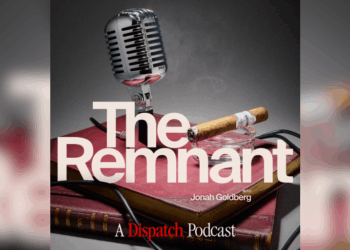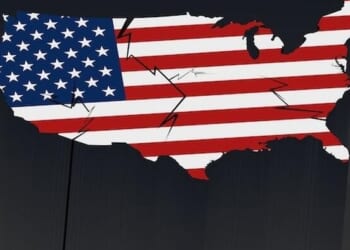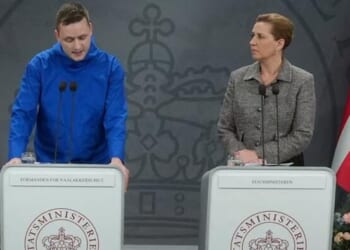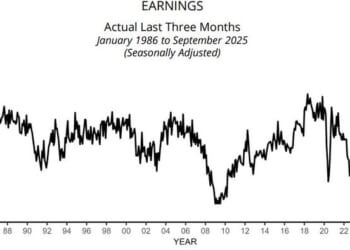It is time to reclaim our religious freedoms in the public arena! Freedom, including our freedom to worship, is the very heartbeat of America. For the last fifty years, court rulings have placed strict restrictions on the practice of religion. The judiciary had a hostility to religious expression, using the misconception that the state and church were required to be separated.
In 1971, the U.S. Supreme Court unanimously ruled in Lemon v. Kurtzman that public monies could not be used in religious schools, which had the effect of stopping prayer in public schools. The three-prong “Lemon Test” stipulated that any law must:
- Have a secular, non-religious purpose.
- Its primary effect must not advance or inhibit religion.
- It must not create excessive entanglement between the government and religion.
We have reaped the whirlwind of the last fifty years when our government removed God from the public square. The result of the courts’ cancelling the public expression of faith has been fifty years of worshiping the state instead of worshiping God.
In 2022, the U.S. Supreme Court overturned the “Lemon Test” from Lemon v. Kurtzman, which restored religious freedoms that had been unnecessarily restricted. Prayer can be back in school. This major event was largely unreported, and most Americans still believe their freedom to worship is exceptionally limited in public spaces.
Kelly Shackelford, JD of First Liberty, argued against the “Lemon Test” and won in Kennedy v. Bremerton School District, in which a football coach was fired for praying with his team. Shackelford said, “When you look at why our founders established this country, they wanted to be able to worship and exercise their religion in public, in their daily life, in every way, without the government telling them that they cannot do those things.”
“Separation of church and state, those words are not in the Constitution. Anywhere the government is, religion cannot be. But, of course, the government is everywhere. It pushed religion to the corners of society. It became a weapon,” said Shackelford. The Lemon decision was a total change in the time-tested values of our country. Nature abhors a vacuum, so when God was removed from the public square, a very different morality filled the void. Historically and culturally, America is religious, and now that fact can be recognized and celebrated. Every school or public place where a cross, nativity scene, or posting of the Ten Commandments has been removed, now all of those expressions of faith can be restored.
The First Amendment in our U.S. Constitution establishes five freedoms, and the first one is religion: “Congress shall make no law respecting an establishment of religion, or prohibiting the free exercise thereof”. The first statement, known as the Establishment Clause, prohibits the government from enforcing a national religion. The second statement, known as the Free Exercise Clause, prohibits the government from controlling our practice of faith.
So, don’t be a coward or embarrassed about your public displays of faith. Yet, in the name of “tolerance”, we have allowed faith in God to be permitted only on the inside of a church or temple. For our national self-preservation, we must display and teach our faith to our children. For example, no one can understand the wealth of western civilization and our heritage, including art, music, and literature, without understanding the Bible.
Eagle Forum of Alabama has produced a Religious Liberty Initiative with two four-minute videos to disseminate this crucial information. These videos explain the restored legal landscape. It directs action to reclaim America’s religious liberty; for example, through posting the Ten Commandments, which instill respect for life and for property. To counter evil, we must both punish its perpetrators and advance America’s Constitutional principles so that Americans can once again express their faith without fear of being shot on a college campus or while worshipping in their Christian school. Our duty is to pass on to the next generation the legacy that people lived and died for.
Please visit https://alabamaeagle.org/issues/religious-liberty/ to watch the videos and send to everyone you know.
Eagle Forum of Alabama has compiled this useful list of our restored freedoms:
Some of the Many Religious Activities That Can Be Lawful In A Public Setting Under The Kennedy Case
- A public school district cannot be hostile toward religious beliefs.
- Students can speak about their faith even when teachers must be neutral. Schools cannot treat religious activity differently than other activities.
- Students can pray during lunch, recess, or other designated free time.
- Students can read the Bible or other religious materials at school.
- Students can share their faith with fellow students.
- Schools can acknowledge religion when teaching various subjects.
- Students can pray, either individually or as a group, at school athletic competitions, student assemblies, or other extracurricular activities when school officials are not involved. In many cases, a school district can allow student-led prayer before an athletic competition (such as a football game), a student assembly, or other extracurricular event.
- Students can pray at graduation ceremonies or include religious content in their speeches.
- A public school can actually refer to “Christmas” again and have a “Christmas party” if the intent is not to advance religion. And yes, a public school can display Christmas decorations such as a Nativity scene.
- Students can give out Christmas gifts with religious messages at school parties.
- Students can incorporate their faith or religion in classroom and homework assignments under normal and appropriate circumstances.
- Teachers and public-school employees can discuss religion with students under many conditions.
- A public school or a teacher cannot limit religious speech by students unless they limit other speech.
- Students can have a religious club at their school.
- Religious student groups such as Young Life can meet on campus whenever other non-curricular clubs can meet.
- Religious clubs can use the same school resources available to nonreligious clubs (e.g., school facilities, bulletin boards, public address system) to promote or facilitate club events.
- Teachers or public-school employees may attend religious clubs in a supervisory role.
- Churches can rent public schools for worship services.
- A rabbi can light a menorah in the park and a Ten Commandments monument can be displayed.
- Finally, make a joyful noise: Christian bands and Christian music can be played in schools or parks just like any other form of music.

















